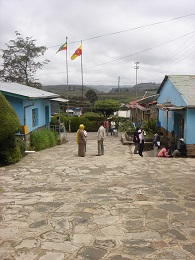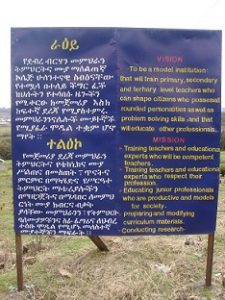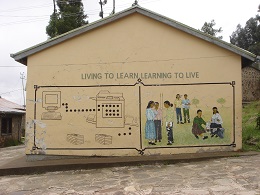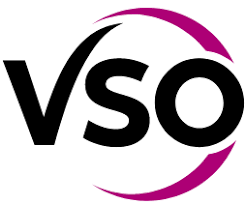
From unsplash.com / © Jannes Van Den Wouwer
“And our hard power, conference, is dwarfed by a phenomenon that the pessimists never predicted when we unbundled the British Empire, and that is soft power – the vast and subtle and pervasive extension of British influence around the world that goes with having the language that was invented and perfected in this country, and now has more speakers than any other language on earth.
“And up the creeks and inlets of every continent on earth there go the gentle, kindly gunboats of British soft power, captained by Jeremy Clarkson – a prophet more honoured abroad, alas, than in his own country – or J.K. Rowling ,who is worshipped by young people in some Asian countries as a kind of divinity, or just the BBC. And no matter how infuriating and shamelessly anti-Brexit they can sometimes be, I think the Beeb is the single greatest and most effective ambassador for our culture and our values.”
So spoke Boris de Piffle Johnson at the Conservative Party conference in 2016 on the subject of soft power and the United Kingdom’s ability, at least back then, to project it. The term ‘soft power’ was coined in the 1980s by Joseph Nye, who described it as ‘getting others to want the outcomes you want’ on an international level. With sufficient soft power, a country can influence other countries through them ‘admiring its values, emulating its example, aspiring to its level of prosperity and openness’ rather than by ‘threatening military force or economic sanctions’ against them.
According to Nye, a country’s soft power comes from its culture, political values and foreign policies and its success in communicating and marketing these to an international audience. The UK had several historical advantages here. It was the original exporter of what is currently the world’s most popular international language, a language that, handily, it shares with the world’s number-one superpower. It was also once a superpower itself, a ruthlessly imperial one, which left a legacy of connections around the world with its former colonies. And, before 2016, it enjoyed a position as one of the main players in the European Union.
With these channels in place, all the UK needed were effective agents to facilitate the flow of its soft power and it had these in abundance too. Not so long ago, the Foreign and Commonwealth Office (FCO), the Department for International Development (DFID), the British Broadcasting Corporation (BBC) and the British Council (BC) did a great deal to promote the UK abroad in the fields of, respectively, diplomacy, development, broadcasting and education. It helped too that the UK had many world-famous educational, cultural and sporting brands it could draw on, ranging from Oxford and Cambridge Universities and William Shakespeare to Manchester United and the Beatles. Though Johnson, never one to let the fear of appearing crass get in the way of what he thinks is a jolly joke, claimed that much of the UK’s soft power was due to foreign petrolheads getting off on Top Gear.
It’s been a long time since I felt any affinity for the UK as a political entity. I would, for instance, be happy to see Scotland become independent of it. But I still feel I have a dog in the fight over the issue of British soft power because for most of the last quarter-century I’ve worked for various organisations and institutions in the fields of education and development that, directly or indirectly, have helped to promote British soft power abroad. This hasn’t bothered me too much. The days of the imperialist British Empire mentality were, I thought, long gone. And although there have been a few catastrophic foreign policy errors, such as Tony Bliar’s decision to involve the UK in the 2003 invasion of Iraq, I thought that the ‘values’, ‘examples’ and ‘openness’ Britain promoted abroad weren’t negative ones. At least, in the early 21st century, they could have been worse. I wouldn’t necessarily say the UK was one of the good guys as far as countries went, but it seemed one of the better guys.
That, however, was before the disaster of 2016’s Brexit referendum vote and the decision by voters in Britain – well, in England and Wales – to amputate the country from the European Union and embrace a parochial Little Englander nationalism. This was promulgated by an array of shameless opportunistic chancers like Michael Gove, Nigel Farage, Jacob Rees-Mogg, Dominic Cummings, Daniel Hannan, Aaron Banks and of course Johnson himself. Cheering them on was Britain’s right-wing press, owned by the billionaire likes of Rupert Murdoch and the Barclay Brothers.
Johnson’s government, and that of Theresa May before him, have done their best to play to a gallery of xenophobes, reactionaries, gammons and flag-shaggers, making decisions that right-wing tabloid headlines construe as sticking up for plucky little Blighty whilst giving Johnny Foreigner one in the eye. In fact, what they’ve succeeded in doing is eroding the once-impressive edifice of British soft power on the international stage. You can read about Britain’s decline in the world’s soft-power rankings here.
One example of this, perhaps small in the general scheme of things but telling in its malignant stupidity, is how the decision by Johnson’s government to cut UK overseas bilateral aid by at least 50% has impacted on the Voluntary Service Overseas (VSO) organisation. VSO is dependent for half its budget on the Foreign, Commonwealth and Development Office, which is the unwieldy result of DFID being amalgamated with the FCO in 2020. With the foreign aid budget decimated, VSO is now preparing to shut operations in 14 countries, wind down its Volunteering for Development scheme and end its Covid-19 response initiative, which supports four-and-a-half million people in 18 countries. This follows on from the demise of VSO’s International Citizen Service in February.

I worked as a volunteer with VSO in Ethiopia from 1999 to 2001. Now, thanks to some of my experiences there and elsewhere, I’m cynical about much of what goes on in the international aid and development industry and I agree with criticisms of it made in books like Graham Hancock’s The Lords of Poverty (1989) and Dambisa Moyo’s Dead Aid (2010). In Ethiopia, where I worked as an instructor at a teacher-training institute, I went into primary school classes containing 40 or more pupils who often had to share one textbook in groups of three or four and had to sit on the floor because there weren’t enough chairs. Classrooms often had gaping holes in their floors, broken furniture and no electricity. Meanwhile, officials at the local Regional Educational Board luxuriated in carpeted, air-conditioned offices equipped with computers, printers and projectors. The money given to the region’s educational budget by a Scandinavian aid organisation had never percolated down past the hands of the middle-class bureaucrats into which it’d been entrusted.
The campus I worked on featured its own monument to aid-industry inefficiency. It contained a language laboratory that’d been gifted by French money. I’m not sure if that language lab had ever worked but it certainly wasn’t in use while I was there. It was full of big, dust-covered consoles that, like computers in a flashy 1960s spy thriller, used clunky spools of tape. Whoever had signed the original cheques hadn’t done any research. They hadn’t realised that the language-teaching world’s preferred medium for giving students practice in listening, especially in a rough-and-tumble environment like 1990s Ethiopia, was the humble, durable and portable audio-cassette tape.
But VSO’s modus operandum was not about spending money that was vulnerable to being misappropriated by corruption or incompetence. It recognised that the key was training. Transferring skills from one person to another, so that the recipient is able to do his or her job better, leads to sustainable positive changes. Accordingly, the people who volunteered to work for VSO were experienced professionals in their home countries. By doing a similar job in the same field in what was then termed ‘a developing country’, they could contribute to improving the training and performances of the local people they worked beside. This wasn’t because they were better professionals than their local peers. They’d just had the advantage of having trained and worked in more developed countries.
One important feature of VSO was that its volunteers earned the same salary as their local colleagues. This meant they shared the same working and living conditions as the locals did – unlike employees of other aid agencies, there was no living in fancy compounds, working in high-tech offices or travelling in supersized 4x4s for them. Therefore, the problems faced by local professionals during their jobs were as much of a headache for the VSO volunteers too, and together they had to devise solutions to these problems that drew on local knowledge, were realistic and would actually work on the ground.
In my criticisms of foreign aid, then, I’m not arguing that budgets should be slashed. If necessary, they should be recalibrated so that training and sustainability are at the fore, if those things aren’t already. As the old proverb goes, “Give a man a fish and he will eat for a day. Teach a man how to fish and you feed him for a lifetime.”


I knew from the responses of Ethiopian friends and colleagues that VSO’s work in their country earned much respect for Britain at the time. Meanwhile, my VSO experiences did a lot for me personally, helping me to become more organised, practical, resourceful, confident and diplomatic. So Britain and the VSO volunteers benefitted as much as the local folk did. It was a win-win-win situation.
The fact that government cuts have subjected VSO to this crisis shows what hot air Boris Johnson’s words about the value of British soft power, quoted at the start of this entry, really were. He clearly has no interest in how the rest of the world perceives and interacts with the UK, other than it providing a few post-Brexit trade deals and being somewhere that he and his moneyed cronies can escape to for their luxury holidays.
Government actions elsewhere underline this. The plug has already been pulled on Britain’s participation in the Erasmus programme, which allowed 15,000 British students annually to study in European universities without paying fees. The BBC seems to stagger from one government-induced crisis to another and its main instrument of international influence, the once-admired BBC World Service, has been in freefall from budget cuts since the Tory government of David Cameron. Other organisations that promote Britain overseas are in similarly dire straits and the current Covid-19 pandemic has made the situation even worse. But Johnson and company obviously don’t care if they wither on the vine.
Yes, as the Conservative government develops its new blueprint for the country as a giant sweatshop where the majority work for peanuts and without protections, and where a political / economic elite make a fortune and pay as little tax as possible, the drawbridge is being pulled up between Britain and the outside world. It’s a tragedy that an exemplary organisation like VSO looks like being the latest victim of this mindset.

